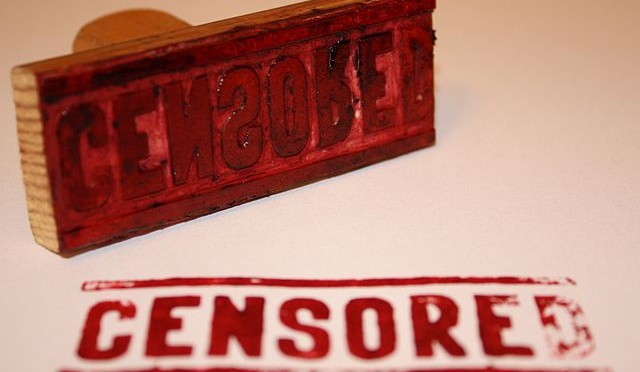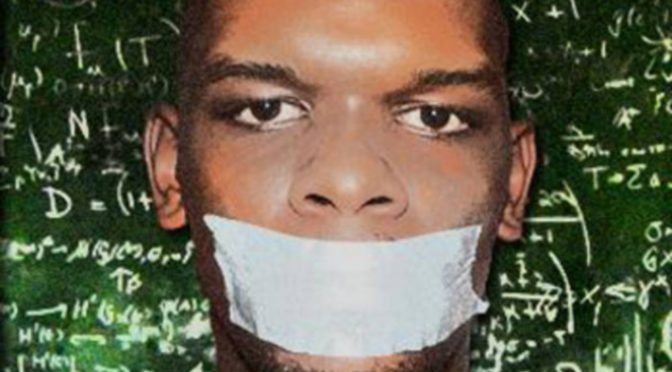On Wednesday, I celebrated my return to Facebook after a one week ban. If you haven’t been banned from posting to Facebook yet, you should try, at least once, to get the feel for what it may be like to live in a techno-totalitarian state. While I could still see what was going on, I could not post – either to my personal page or to pages I manage, such as the Sex & Censorship page. Furthermore, I could not reply to messages in Facebook messenger, reply to comments on posts, or even Like them.
The ban was my third, and all three were done on the basis that I had posted “hate speech”. While I was banned, I noticed that two other Facebook friends posted that they were also returning from being banned. Here are the details of my three bans.
1) Responding to the “racist vans”
In 2013, the Home Office (headed by that charming lady, Theresa May), signalled a rising state intolerance towards migration by sending out “racist vans” which carried the charming slogan “In the UK illegally? Go home or face arrest”. I was on the way on the way to celebrate Jamaican Independence Day in Brixton, and I had an idea for a satirical, anti-racist post. Which went something like… ‘Happy Jamaican Independence Day! Or “fuck off w*gs day”, as it’s known in the Home Office.” I was quite proud of this, which gives you an indication of my sense of humour.
Note: firstly, I didn’t censor the w- word in my original post. It being 2013, I naively assumed that Facebook would understand the difference between a potentially racist word used in a racist context, and the same word used in a satirical, anti-racist context. I was wrong. The reason I censor the word in this article is that Facebook-style censorship will soon be applied to the entire web. There is every chance that blogs using such words will soon be blocked by a state-managed censorship system (the one being introduced in April under the pretext of blocking bad porn sites). Secondly, Facebook doesn’t seem to provide me a record of my banned posts. So I have to repost from memory.
I was banned for “hate speech” (from memory) for five days. This was the shape of things to come: not only is racism seen as problematic, but discussion of racism has also become problematic.
2) Sharing a white supremacist flyer
A (black) Facebook friend shared a flyer advertising a white supremacist rally in Wales a few days later. Her point in sharing it, obviously, wasn’t to promote the white supremacist cause, but to alert anti-racists of the event. I shared it, with a comment along the lines of “Calling Welsh anti-racists!”
I was banned again for “hate speech”. My black friend also had her post removed, but was not banned.
3) Appalling misogyny
In the latest episode, a female friend posted to Facebook “Women are psychos”. I’m not sure why she posted this, and I never saw the original post anyway. The post was removed, but she posted a screenshot of the conversation with Facebook support, which included the original post. I felt this was worthy of discussion, so I shared the image to the Sex & Censorship Facebook page. Not only was the post banned, but I received a seven-day ban from Facebook, again for “hate speech”.
There are various lessons that arise here, but the worrying aspect is that discussion about censorship is also censored. When a person is arrested for hate speech, the media coverage tends not to mention what the speech was – because, of course, the article itself might then be reported as hate speech. So the public gets no opportunity to discuss whether the punishment fits the crime, or even to know what the crime was.
Note that a murder can be described in vivid detail by the press, but “hate speech” cannot. Since justice must be “seen to be done”, it seems that justice is not possible in the case of hate speech.


